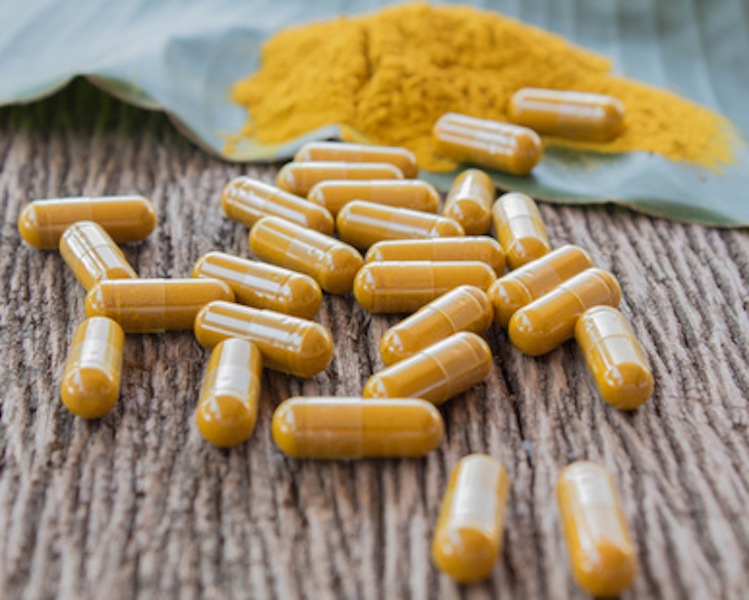It seems like more studies are popping up everyday showing promising benefits when it comes to this wondrous spice and root, Now studies show turmeric is as effective as many prescribed drugs.
Turmeric, also known as the “Indian solid gold” gets its nickname not only because of its gold color, but for the fact that it is worth its weight in gold when it comes to health benefits. Turmeric remains one the most researched plants in the world. Its medicinal properties have been the subject of over 6000 peer-reviewed and published biomedical studies.
It is armed with antioxidant and anti-inflammatory properties, which fight diseases like Alzheimer’s and common cancer. It is truly a superstar spice, and new studies show that it can even kill multiple myeloma cells.
Because of the extensive research, studies have found turmeric to be as effective as many drugs prescribed by doctors.
– Lipitor/Atorvastatin (cholesterol medication):
A study from 2008 published in a journal called Drugs in R&D showed that curcumin, the active ingredient in turmeric compared to Lipitor on treating endothelial dysfunction and reducing inflammation and oxidative stress in type 2 diabetes patients.
– Corticosteroids (steroid medications):
A study published in a journal called Phytotherapy Research found that curcumin compared to steroids in treating a chronic eye disease called chronic anterior uveitis. A 2008 study from the Critical Care Medicine journal showed that curcumin compared to steroid drugs for protecting injuries associated with lung transplant.
– Prozac (antidepressant):
A study published in a journal called Acta Poloniae Pharmaceutica found that curcumin provided similar antidepressant activity as Prozac and other antidepressants.
– Aspirin (blood thinner):
A 1986 study published in the journal Arzneimittelforschung showed that curcumin had similar blood thinner effects as aspirin.
– Anti-inflammatory drugs:
A study published in the journal Oncogene showed that curcumin has anti-inflammatory effects similar to over-the-counter drugs such as aspirin, ibuprofen, sulindac, phenylbutazone, naproxen, indomethacin, diclofenac, dexamethasone, celecoxib, and tamoxifen.
– Oxaliplatin (chemotherapy medication):
A study published in the International Journal of Cancer showed that curcumin compared to Oxaliplatin in antiproliferative effects in colorectal cell lines.
– Metformin (diabetes medication):
A study published in the journal called Biochemistry and Biophysical Research Community showed that curcumin compared to Metformin in suppressing glucose formation in the liver.
As always: Check with your health practitioner before you change your diet and see if this is right for you. This spice is not meant to replace any treatment or drugs you are taking.
Note: None of the information in our website is intended to diagnose, treat, cure or prevent any illness or disease. The content on our website is for educational purposes only.
New study shows turmeric kills multiple myeloma cells.
For the health benefits of turmeric.
REFERENCES:
1. “Science Confirms Turmeric As Effective As 14 Drugs.” GreenMedInfo. GreenMedInfo, 13 May 2013. Web. 22 Mar. 2014.
2. “Effect of NCB-02, Atorvastatin and Placebo on Endothelial Function, Oxidative Stress and Inflammatory Markers in Patients with Type 2 Diabetes Mellitus: A Randomized, Parallel-group, Placebo-controlled, 8-week Study.” National Center for Biotechnology Information. Drugs R&D, n.d. Web. 22 Mar. 2014.
3. “Efficacy of Curcumin in the Management of Chronic Anterior Uveitis.” National Center for Biotechnology Information. Phytotherapy Research, n.d. Web. 22 Mar. 2014.
4. “Preventive Effects of Curcumin and Dexamethasone on Lung Transplantation-associated Lung Injury in Rats.” National Center for Biotechnology Information. Critical Care Medicine, Apr. 2008. Web. 22 Mar. 2014.
5. “Effects of Curcumin or Dexamethasone on Lung Ischaemia-reperfusion Injury in Rats.” National Center for Biotechnology Information. U.S. National Library of Medicine, Feb. 2009. Web. 22 Mar. 2014.
6. “Evaluation of Antidepressant like Activity of Curcumin and Its Combination with Fluoxetine and Imipramine: An Acute and Chronic Study.” National Center for Biotechnology Information. Acta Poloniae Pharmaceutica, Sept.-Oct. 2011. Web. 22 Mar. 2014.
7. “Effect of Curcumin on Platelet Aggregation and Vascular Prostacyclin Synthesis.” National Center for Biotechnology Information. Arzneimittelforschung, Apr. 1986. Web. 22 Mar. 2014.
8. “Nonsteroidal Anti-inflammatory Agents Differ in Their Ability to Suppress NF-kappaB Activation, Inhibition of Expression of Cyclooxygenase-2 and Cyclin D1, and Abrogation of Tumor Cell Proliferation.” National Center for Biotechnology Information. Oncogene, Dec. 2004. Web. 22 Mar. 2014.
9. “Curcumin Activates AMPK and Suppresses Gluconeogenic Gene Expression in Hepatoma Cells.” National Center for Biotechnology Information. Biochemistry and Biophysical Research Community, 16 Oct. 2009. Web. 22 Mar. 2014.

















